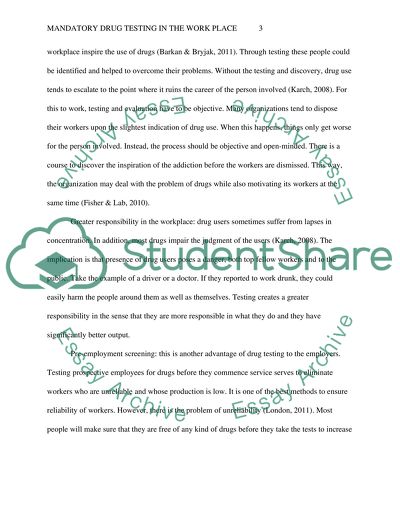Cite this document
(“Mandatory Drug Testing in the Work Place: Pros and Cons Research Paper”, n.d.)
Retrieved from https://studentshare.org/sociology/1491383-mandatory-drug-testing-in-the-work-place-pros-and
Retrieved from https://studentshare.org/sociology/1491383-mandatory-drug-testing-in-the-work-place-pros-and
(Mandatory Drug Testing in the Work Place: Pros and Cons Research Paper)
https://studentshare.org/sociology/1491383-mandatory-drug-testing-in-the-work-place-pros-and.
https://studentshare.org/sociology/1491383-mandatory-drug-testing-in-the-work-place-pros-and.
“Mandatory Drug Testing in the Work Place: Pros and Cons Research Paper”, n.d. https://studentshare.org/sociology/1491383-mandatory-drug-testing-in-the-work-place-pros-and.


